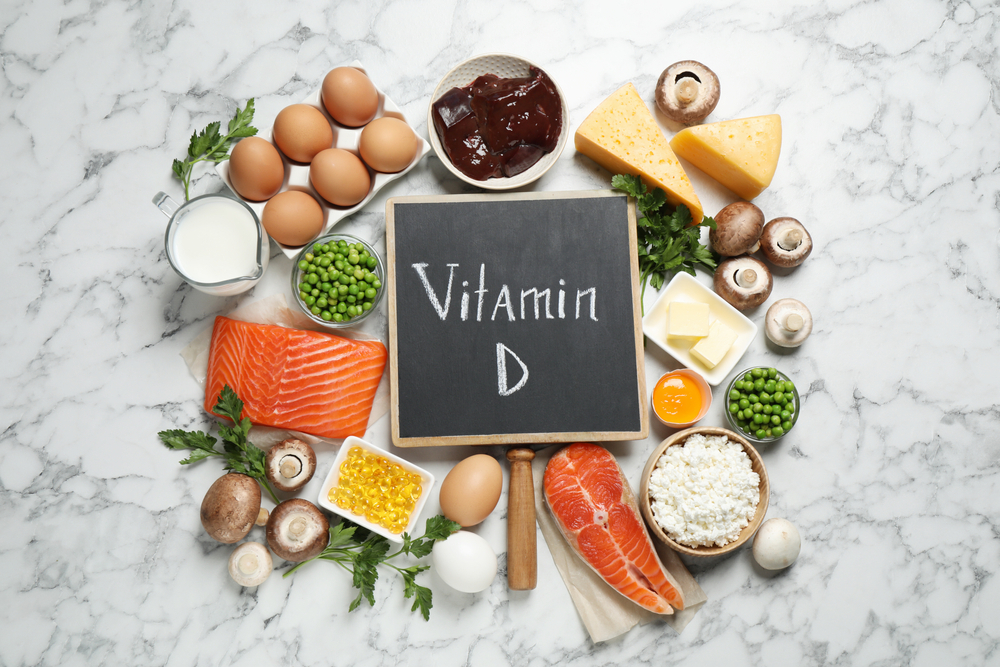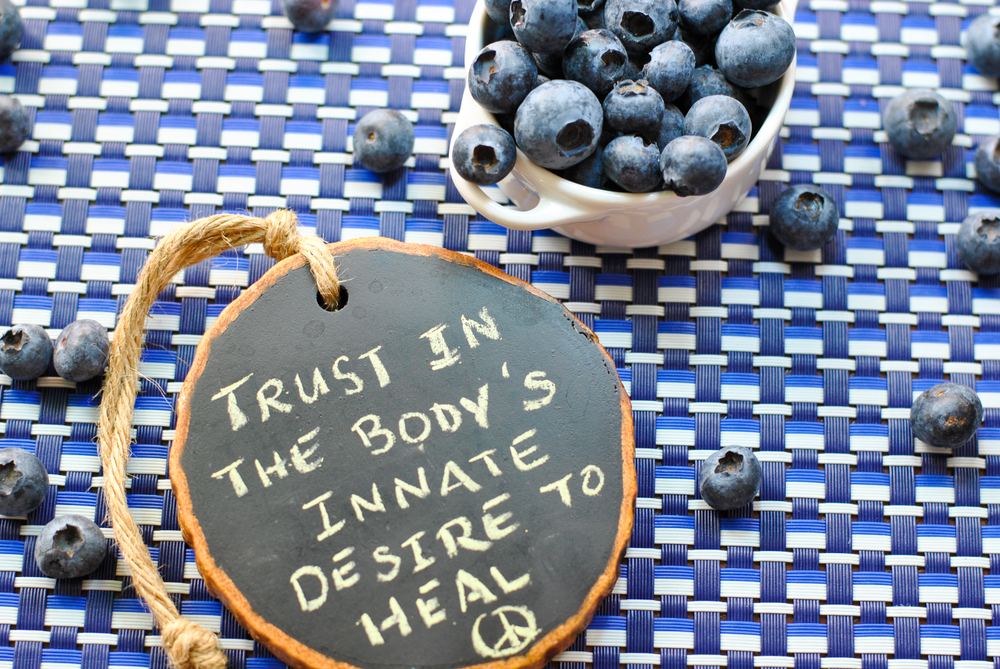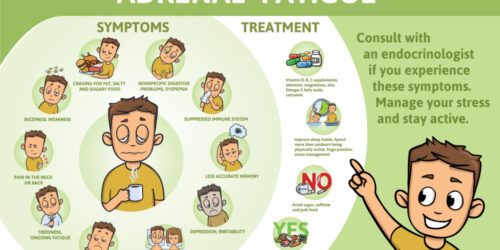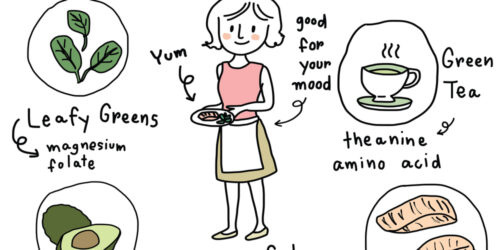Unleashing the Power of Vitamin D for Positive Holistic Stress Mastery

Table of Contents
In today’s fast-paced world, holistic stress management has become increasingly important for maintaining mental and physical well-being. One key player in this holistic approach is the often overlooked vitamin D. In this article, we’ll explore the vital role of vitamin D in helping our bodies manage and reduce stress, and how it contributes to overall well-being.
Understanding Vitamin D
Vitamin D isn’t just another nutrient; it’s a powerhouse for our health and a champion for our mood. Often called the “sunshine vitamin,” it swoops in with an array of benefits that could make a big difference in how we handle life’s pressures. From its natural mighty source in the sky to the foods that can boost our levels, understanding this vitamin is our first step towards tuning our stress-o-meter down a notch. Let’s dive into the sources of this sunny ally and see what happens to our bodies when we’re running low on it.
Sources of Vitamin D
Let’s dive into where we can find this sunshine nutrient. Vitamin D primarily comes from the sun itself. When we bask in sunlight, our skin kicks into gear, producing vitamin D from the sun’s rays. It’s like our body’s natural magic, transforming sunlight into something that can brighten our day inside and out.
But, the sun isn’t the only source. We can also get a helping hand from certain foods. Fatty fish such as salmon and tuna are swimming in this vital nutrient. Plus, eggs and fortified foods like milk and cereal come to the breakfast table armed with vitamin D. It’s a team effort from our diet and the sun to keep our vitamin D levels topped up.
Vitamin D Deficiency and Stress
Are you feeling more stressed out than usual? It might be down to something you haven’t even considered – like not getting enough sunshine vitamin! You see, when our bodies lack vitamin D it can throw us for a loop, messing with our mood and energy levels big time.
Scientists have discovered that there’s a real link between feeling stressed out and not having enough vitamin D in your system. When your vitamin D levels dip too low, it can lead to feelings of anxiety and overwhelm. That’s because this super important nutrient has a job making sure our brain chemicals are balanced, and our stress responses are in check. So, it’s not just about avoiding rickets or keeping bones strong – vitamin D is like a backstage pass to a chill mind too!
The Link Between Vitamin D and Stress Management

Did you know that a little sunshine vitamin might just be your ally in keeping stress at bay? That’s right, vitamin D, often famed for its bone health benefits, is also making waves in the world of stress management. It works behind the scenes, influencing how our brains handle the pressures of daily life. By tuning into how this vitamin affects our mood and immune function, we unlock new doors to taking control of our stress levels naturally. Let’s discover the powerful ties between vitamin D and our body’s ability to stay calm and carry on.
Effect on Neurotransmitters and Mood
Did you know that vitamin D might play a part in how happy or stressed you feel? It turns out, this “sunshine vitamin” has a pretty cool role in talking to your brain. Our brains use chemicals called neurotransmitters to send messages, and vitamin D helps make sure these chemicals are at the right levels. For example, it helps make serotonin, which is often called the “feel-good hormone”. This is the same hormone that makes you feel awesome after a good laugh or a hug!
When our bodies don’t get enough vitamin D, things can get a little out of whack. You might feel down or more stressed than usual. That’s because low levels of the vitamin can mess with serotonin and throw off your mood. Plus, scientists have found links between vitamin D deficiency and higher levels of stress-related conditions. So, if you’re feeling extra edgy, it could be a sign to check if you’re getting enough of this helpful nutrient.
Impact on Immune System Function
Did you know that our immune system is a key player in our stress response? That’s right, when we’re stressed out, our immune system can take a hit. Now, here’s where vitamin D steps onto the stage. This powerhouse vitamin is like a guardian for our immune health.
When our bodies get enough vitamin D, it helps our immune cells function properly. Think of vitamin D as a coach, giving instructions to immune cells on how to do their job better. This can mean fewer sick days and better defense against invaders. And wouldn’t you know it – when our immune system is in tip-top shape, our stress levels might just drop. So, soak up some sun or chow down on vitamin D-rich foods, and you’re not just nourishing your body, you’re also armoring up against stress.
Practical Steps for Optimal Vitamin D Intake

Taking in enough vitamin D can be a game changer for your stress levels, but how do you make sure you’re getting enough? It’s not just about soaking up some sunshine; your diet and maybe even supplements play a big part. Let’s dive into some easy, practical ways to boost your vitamin D intake and keep your stress in check.
Exposure to Sunlight
Let’s talk sunshine! One of the easiest ways to boost your levels of this crucial ‘sunshine vitamin’ is literally stepping into the light of day. Sunlight is our best friend when it comes to naturally increasing vitamin D in our body. Just a little time spent outside, especially around midday when the sun is highest, can do wonders for your mood and stress levels.
But, you might wonder, how much sun should you get? Well, it’s not a one-size-fits-all answer. Factors like skin tone, where you live, and even the time of year play a role. A quick 15 to 20 minutes a couple of times a week could be enough for some, while others might need a bit more. Remember to wear sunscreen if you’re staying out longer to protect your skin from harm – yes, you can still make vitamin D with sunscreen on!
Dietary Sources
It’s no secret that soaking up some sun does wonders for boosting our vitamin D levels, but the sun isn’t always around when we need it. So, where else can we find this vital nutrient? Nature’s pantry is full of tasty options.
Start with fatty fish like salmon, mackerel, and tuna which are not just delicious but are also powerhouses of vitamin D. They’re like nature’s little stress-busters wrapped in scales. Don’t forget egg yolks; they’re more than just a breakfast staple—they’re little golden rounds of goodness that help keep stress at bay. For the vegetarians and vegans out there, mushrooms are your friends, especially when they’re basking in some sunlight before making it to your plate.
And let’s not overlook fortified foods. Some dairy products, orange juice, and cereals have an extra kick of vitamin D added to them to help you meet your daily goals. Remember, a balanced diet with these vitamin D-rich foods can help keep the stress monsters away!
Supplementation and Dosage
Sometimes we can’t get enough sunlight, and our food just doesn’t cut it when it comes to meeting our body’s vitamin D needs. That’s where supplements come into play. They’re a reliable way to ensure you’re getting the right amount of this crucial nutrient, especially during those winter months or if you’re indoors a lot.
When it comes to dosage, it’s not one-size-fits-all. A healthcare provider can run a simple blood test to check your levels and recommend a dosage that’s just right for you. Generally, adults can take anywhere from 600 to 2,000 IU (international units) per day, but your needs might be different. It’s super important to follow their guidance because, like with anything, too much of a good thing isn’t always better.
Lifestyle Measures for Holistic Stress Management

Adopting a well-rounded approach to stress management is crucial for our overall health. Nurturing our bodies and minds through balanced nutrition, regular physical activity, calming mindfulness practices, and ensuring we get enough healthy sleep can act like pillars supporting a stress-resistant lifestyle. Each of these components not only contributes to reducing our stress levels but also maximizes the benefits we get from vitamin D. Let’s dive into how combining these lifestyle practices with sufficient vitamin D can be a game-changer for our well-being.
Balanced Nutrition and Physical Activity
To manage stress effectively, combining balanced nutrition with regular physical activity is a dynamic duo. Eating a variety of healthy foods ensures that your body gets the necessary nutrients, including vitamins and minerals that keep your stress levels in check. Foods rich in antioxidants, lean proteins, whole grains, and omega-3 fatty acids are particularly beneficial for fostering a calm mind.
Moreover, engaging in physical activity is like hitting the refresh button on your mood. Exercise releases endorphins, the body’s feel-good hormones, which act as natural stress-relievers. You don’t have to run a marathon; even a daily brisk walk or a quick yoga session can make a significant difference in how you handle stress. Balancing what we eat with staying active forms a solid foundation for not just stress management, but for thriving health overall.
Mindfulness Practices
When we think about stress, it’s like a noisy crowd inside our heads. Mindfulness is like a wise conductor who calms the crowd and brings harmony to the orchestra. It’s a powerful way to clear our minds and focus on the here and now. By paying attention to our thoughts and feelings without judgment, mindfulness can aid in lowering the volume of stress we experience.
Practicing mindfulness can look different for everyone. Maybe it’s taking ten minutes each morning to meditate or simply focusing on our breath between tasks. The key is consistency. Making a habit of these practices can help to reinforce the calm and clarity that vitamin D brings to our minds and bodies. By partnering mindfulness with a vitamin D-rich routine, you’re setting up a solid defense against the hustle and bustle of daily stress.
Healthy Sleep Patterns
Good sleep isn’t just about getting enough hours; it’s about quality rest. When we sleep well, our body has the chance to repair itself and balance out stress hormones. It turns out, catching enough Z’s is also connected to how well our body can use vitamin D.
How come? Well, both too little sleep and poor-quality sleep can throw off how our body handles stress, making it harder for us to stay chill. So, we should aim for a consistent bedtime routine that includes 7 to 9 hours of shut-eye. By keeping our sleep patterns steady, we’re helping our body ride the ups and downs of the day much better. Plus, a well-rested body can make better use of vitamin D, which is a win-win for staving off stress.
Embracing a Vitamin D-Rich Lifestyle
Living a lifestyle rich in vitamin D is like adding a daily dose of sunshine to your life, quite literally. It’s about making choices that ensure your body gets enough of this crucial nutrient to help you combat stress and boost your mood. From lounging in the sunlight with proper protection to enjoying a diet full of vitamin D-packed foods like fatty fish and fortified dairy, you’re setting the stage for a calmer and happier you.
In addition to nourishing your body with vitamin D, you can adopt a holistic approach to stress management by including regular exercise, practicing mindfulness, and ensuring you get quality sleep. These lifestyle habits work hand in hand, reinforcing the positive effects of vitamin D on your well-being. By making these smart choices day by day, you’re not just getting through the day; you’re thriving with each sunrise.
Conclusion
As we acknowledge the significance of holistic stress management, it’s clear that vitamin D plays a remarkable role in this journey towards improved well-being. By embracing a vitamin D-rich lifestyle and harnessing its benefits, we empower ourselves to better manage stress, enhance mood, and foster overall holistic health. Let’s step into the sun and welcome the abundance of vitamin D for a brighter, stress-resilient tomorrow.
FAQs
Q: How does vitamin D help reduce stress? A: Vitamin D plays a crucial role in regulating neurotransmitters like serotonin, which influence mood, and supports overall brain function. Exposure to sunlight, a natural source of Vitamin D, can positively impact mental well-being, contributing to stress reduction.
Q: How can I reduce stress naturally? A: Natural stress reduction can be achieved through practices such as regular exercise, mindfulness meditation, adequate sleep, a balanced diet rich in nutrients like Vitamin D, and fostering positive social connections.
Q: What are the 4 A’s of stress management? A: The 4 A’s of stress management are Awareness (recognizing stressors), Acceptance (acknowledging stress as a part of life), Adaptation (adjusting to stressors), and Action (taking proactive steps to manage stress effectively).
Q: What are the 5 A’s of stress management? A: The 5 A’s of stress management typically include Awareness (identifying stressors), Assessment (evaluating stress levels), Alternatives (finding coping strategies), Adapting (making necessary adjustments), and Acceptance (acknowledging and dealing with stress).
Q: What are the 10 stress management techniques? A: Various stress management techniques include deep breathing exercises, progressive muscle relaxation, meditation, yoga, regular physical activity, time management, setting boundaries, positive affirmations, seeking support, and practicing a healthy lifestyle.
Q: What are the 7 steps in managing stress? A: The 7 steps in managing stress often involve identifying stressors, building awareness, practicing relaxation techniques, adopting a healthy lifestyle, developing coping strategies, seeking social support, and, when needed, consulting with a healthcare professional for guidance.
Useful resources
- National Institutes of Health (NIH):
- Website: https://www.nih.gov/
- Search for articles or publications related to Vitamin D and stress.
- Mayo Clinic:
- Website: https://www.mayoclinic.org/
- Look for health information or articles on Vitamin D and its impact on stress.
- PubMed:
- Website: https://pubmed.ncbi.nlm.nih.gov/
- Search for scientific studies or articles on the relationship between Vitamin D and stress.
- WebMD:
- Website: https://www.webmd.com/
- Explore the health section for information on Vitamin D and stress management.








I truly appreciate your technique of writing a blog. I added it to my bookmark site list and will
Just wish to say your article is as surprising The clearness in your post is just cool and i could assume youre an expert on this subject Fine with your permission allow me to grab your RSS feed to keep updated with forthcoming post Thanks a million and please keep up the enjoyable work